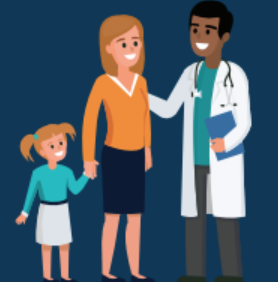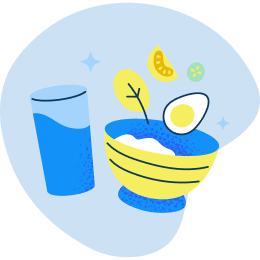
A–Z Health
Find doctor-approved information about symptoms, causes, treatment and prevention of common diseases and conditions.
Home » A–Z Health
A
- Abnormal Uterine Bleeding (AUB) [Conditions]
- Abrasiones en la córnea [Conditions]
- Abuso del alcohol [Conditions]
- Accidente cerebrovascular [Conditions]
- ACL Injury [Conditions]
- Acute Bronchitis [Conditions]
- Adenoides agrandadas [Conditions]
- Adicción a los opioides [Conditions]
- Adicción sin sustancias [Conditions]
- Adult ADHD (Attention-Deficit/Hyperactivity Disorder) [Conditions]
- Agotamiento por calor y golpe de calor [Conditions]
- Alcohol Use Disorder (AUD) [Conditions]
- Alergias a los alimentos [Conditions]
- Allergic Rhinitis (Allergies) [Conditions]
- Alopecia areata [Conditions]
- Alopecia Areata (Hair Loss) [Conditions]
- Alzheimer’s Disease [Conditions]
- Ambliopía [Conditions]
- Amblyopia (Lazy Eye) [Conditions]
- Amenorrea [Conditions]
- Amenorrhea [Conditions]
- Amigdalitis [Conditions]
- Anal Fissures [Conditions]
- Anal Fistulas [Conditions]
- Anemia [Conditions]
- Anemia [Conditions]
- Apendicitis [Conditions]
- Apnea del sueño [Conditions]
- Appendicitis [Conditions]
- Asma [Conditions]
- Asperger’s Syndrome [Conditions]
- Asthma [Conditions]
- Ataque cardíaco [Conditions]
- Ataques cardíacos silenciosos [Conditions]
- Austismo [Conditions]
- Autism Spectrum Disorder (ASD) [Conditions]
B
- Bacterial Vaginosis (BV) [Conditions]
- Bartholin’s Gland Cyst [Conditions]
- Bladder Stone [Conditions]
- Bleeding During Pregnancy [Conditions]
- Bloating [Conditions]
- Blood Clot [Conditions]
- Blood Poisoning (Sepsis) [Conditions]
- Breast Cyst [Conditions]
- Broncoespasmo inducido por el ejercicio [Conditions]
- Bronquitis Aguda [Conditions]
- Burners [Conditions]
- Burning Mouth Syndrome [Conditions]
- Bursitis de cardera [Conditions]
- Bursitis of the Hip [Conditions]
C
- C. Diff. (Clostridioides difficile) [Conditions]
- Cálculos en la vejiga [Conditions]
- Cancer [Conditions]
- Cáncer (ES) [Conditions]
- Canker Sores [Conditions]
- Cat-Scratch Disease (Cat-Scratch Fever) [Conditions]
- Cellulitis [Conditions]
- Celulitis (ES) [Conditions]
- Cervical Dysplasia [Conditions]
- Cervical Spondylotic Myelopathy (CSM) [Conditions]
- Cetoacidosis diabética [Conditions]
- Chronic Kidney Disease (CKD) [Conditions]
- Cirrhosis and Portal Hypertension [Conditions]
- Cirrosis e hipertensión portal [Conditions]
- Cistitis intersticial [Conditions]
- Clostridium difficile (C. diff.) Infección [Conditions]
- Clubfoot [Conditions]
- Coágulos de sangre [Conditions]
- Codo de tenista [Conditions]
- Colds and the Flu [Conditions]
- Colesterol Alto [Conditions]
- Colic [Conditions]
- Cólicos [Conditions]
- Corneal Abrasion [Conditions]
- Coronavirus (COVID-19) [Conditions]
- Coronavirus (COVID-19) (ES) [Conditions]
D
- De Quervain’s Tenosynovitis [Conditions]
- Dedo en martillo [Conditions]
- Deep Vein Thrombosis [Conditions]
- Defectos del tubo neural [Conditions]
- Demencia (ES) [Conditions]
- Dementia [Conditions]
- Depresión [Conditions]
- Depresión posparto (PPD) [Conditions]
- Depression [Conditions]
- Dermatitis del pañal [Conditions]
- Diabetes (ES) [Conditions]
- Diabetes (Type 1) [Conditions]
- Diabetes (Type 2) [Conditions]
- Diabetic Ketoacidosis [Conditions]
- Diaper Rash [Conditions]
- Disfagia [Conditions]
- Disfunción de las trompas de Eustaquio [Conditions]
- Disfunción eréctil [Conditions]
- Disfunción sexual en hombres y mujeres [Conditions]
- Dismenorrea [Conditions]
- Displasia cervical [Conditions]
- Dolor de garganta [Conditions]
- Dolores de crecimiento [Conditions]
- Down Syndrome [Conditions]
- Dysmenorrhea [Conditions]
- Dyspareunia [Conditions]
- Dysphagia [Conditions]
E
- E. coli Infection [Conditions]
- Ear Infection [Conditions]
- Early Pregnancy Loss [Conditions]
- Echinococcosis [Conditions]
- Ectopic Pregnancy [Conditions]
- Edema [Conditions]
- Edema [Conditions]
- El síndrome de Asperger [Conditions]
- Embarazo ectópico [Conditions]
- Endometrial Hyperplasia [Conditions]
- Endometriosis [Conditions]
- Endometriosis (ES) [Conditions]
- Enfermedad de Alzheimer [Conditions]
- Enfermedad de la vaca loca [Conditions]
- Enfermedad de Lyme [Conditions]
- Enfermedad de Raynaud [Conditions]
- Enfermedad de Sever [Conditions]
- Enfermedad inflamatoria intestinal (EII) [Conditions]
- Enfermedad inflamatoria pélvica (EIP) [Conditions]
- Enfermedad por arañazo de gato [Conditions]
- Enfermedades transmitidas por insectos [Conditions]
- Enlarged Adenoids [Conditions]
- Envenenamiento [Conditions]
- Equinococosis [Conditions]
- Erectile Dysfunction (ED) [Conditions]
- Esclerodermia [Conditions]
- Eustachian Tube Dysfunction [Conditions]
- Exercise-induced Bronchospasm [Conditions]
- Exercise-induced Urticaria [Conditions]
F
- Fascitis plantar [Conditions]
- Fecal Incontinence [Conditions]
- Fetal Alcohol Spectrum Disorders (FASD) [Conditions]
- Fetal Growth Restriction [Conditions]
- Fever in Infants and Children [Conditions]
- Fibromialgia (ES) [Conditions]
- Fibromyalgia [Conditions]
- Fiebre en lactantes y niños [Conditions]
- Fiebre Reumática [Conditions]
- Fifth Disease [Conditions]
- Fístulas anales [Conditions]
- Fisuras Anales [Conditions]
- Food Allergies [Conditions]
- Food Poisoning [Conditions]
G
- Galactorrea (ES) [Conditions]
- Galactorrhea [Conditions]
- Generalized Anxiety Disorder [Conditions]
- Genital Warts [Conditions]
- Giardiasis [Conditions]
- Giardiasis [Conditions]
- Growing Pains in Children [Conditions]
H
- Hammer Toe [Conditions]
- Hand, foot, and mouth disease (HFMD) [Conditions]
- Head Injuries [Conditions]
- Heart Attack [Conditions]
- Heart Palpitations [Conditions]
- Heartburn [Conditions]
- Heat Exhaustion and Heat Stroke [Conditions]
- Heat Rash [Conditions]
- Hematuria microscópica [Conditions]
- Hemocromatosis hereditaria [Conditions]
- Hemorrhoids [Conditions]
- Hemorroides (ES) [Conditions]
- Hepatitis A [Conditions]
- Hepatitis A (ES) [Conditions]
- Hepatitis B [Conditions]
- Hereditary Hemochromatosis [Conditions]
- Hernia [Conditions]
- Hernia [Conditions]
- Herpes [Conditions]
- Herpes (ES) [Conditions]
- High Blood Pressure (Hypertension) [Conditions]
- High Blood Pressure During Pregnancy [Conditions]
- High Cholesterol [Conditions]
- Hip Problems in Infants [Conditions]
- Hiperparatiroidismo [Conditions]
- Hiperplasia Endometrial [Conditions]
- Hipertensión pulmonar [Conditions]
- Hipotermia [Conditions]
- Hipotiroidismo [Conditions]
- Hyperparathyroidism [Conditions]
- Hyperthyroidism [Conditions]
- Hypothermia [Conditions]
I
- Incontinencia fecal [Conditions]
- Indigestion [Conditions]
- Indigestión (Dispepsia) [Conditions]
- Infant Jaundice [Conditions]
- Infección de oído [Conditions]
- Infección por E. coli [Conditions]
- Infección por oxiuros [Conditions]
- Infección renal [Conditions]
- Infecciones del tracto urinario [Conditions]
- Infecciones recurrentes en niños [Conditions]
- Inflammatory Bowel Disease (IBD) [Conditions]
- Insect-borne Diseases [Conditions]
- Insulin Resistance [Conditions]
- Interstitial Cystitis [Conditions]
- Interstitial Nephritis [Conditions]
- Intertrigo [Conditions]
- Intertrigo (ES) [Conditions]
- Intolerancia a la lactosa [Conditions]
- Intoxicación alimentaria [Conditions]
- Intussusception [Conditions]
- Intususcepción [Conditions]
J
- Jock Itch [Conditions]
K
- Keloids (Raised Scars) [Conditions]
- Keratosis Pilaris [Conditions]
- Kidney Cysts [Conditions]
- Kidney Infection [Conditions]
L
- Laberintitis [Conditions]
- Labyrinthitis [Conditions]
- Lactose intolerance [Conditions]
- Lesiones del LCA [Conditions]
- Lesiones en la cabeza [Conditions]
- Lichen Planus [Conditions]
- Liquen plano [Conditions]
- Long COVID [Conditions]
- Lyme Disease [Conditions]
M
- Mad Cow Disease [Conditions]
- Mareo por el movimiento [Conditions]
- Mastitis [Conditions]
- Mastitis (ES) [Conditions]
- Mastocitosis [Conditions]
- Mastocytosis [Conditions]
- Measles [Conditions]
- Meningitis [Conditions]
- Menopause [Conditions]
- Menopausia [Conditions]
- Microscopic Hematuria [Conditions]
- Mielopatía cervical espondilótica [Conditions]
- Migraines [Conditions]
- Migrañas [Conditions]
- Mononucleosis [Conditions]
- Mononucleosis [Conditions]
- Motion Sickness [Conditions]
- Mumps [Conditions]
N
- Nefritis intersticial [Conditions]
- Neumonía [Conditions]
- Neural Tube Defects [Conditions]
- Nódulos tiroideos [Conditions]
- Non-substance Addiction [Conditions]
- Nosebleeds [Conditions]
O
- Obesidad [Conditions]
- Obesity [Conditions]
- Obsessive-Compulsive Disorder [Conditions]
- Opioid Addiction [Conditions]
- Orzuelo [Conditions]
- Osteochondritis Dissecans [Conditions]
- Osteocondritis disecante [Conditions]
- Osteopenia [Conditions]
- Osteopenia (ES) [Conditions]
- Osteosarcoma [Conditions]
- Osteosarcoma [Conditions]
- Otitis Media (Exudativa) [Conditions]
- Otitis Media (with Effusion) [Conditions]
- Ovarian Cyst [Conditions]
P
- Palpitaciones cardíacas [Conditions]
- Pancreatitis [Conditions]
- Pancreatitis (ES) [Conditions]
- Panic Disorder and Panic Attacks [Conditions]
- Paperas [Conditions]
- Parafimosis (ES) [Conditions]
- Paraphimosis [Conditions]
- Paronychia [Conditions]
- Pelvic Inflammatory Disease [Conditions]
- Peptic Ulcer Disease [Conditions]
- Pérdida de la visión [Conditions]
- Pérdida temprana del embarazo [Conditions]
- Perimenopause [Conditions]
- Perimenopausia [Conditions]
- Pica [Conditions]
- Pica (ES) [Conditions]
- Pilonidal Cyst [Conditions]
- Pinworm Infection [Conditions]
- Piriformis Syndrome [Conditions]
- Plagiocephaly [Conditions]
- Plantar Fasciitis [Conditions]
- Pneumonia [Conditions]
- Poison Ivy Rash [Conditions]
- Poisoning [Conditions]
- Postpartum Depression (PPD) [Conditions]
- Postpartum Preeclampsia [Conditions]
- Prediabetes [Conditions]
- Prediabetes (ES) [Conditions]
- Preeclampsia posparto [Conditions]
- Premature Ejaculation [Conditions]
- Premenstrual Dysphoric Disorder [Conditions]
- Premenstrual Syndrome (PMS) [Conditions]
- Pressure Sores [Conditions]
- Problemas de cadera en lactantes [Conditions]
- Prurito: Síntomas, Causas y Tratamiento [Conditions]
- Pruritus (Itchy Skin) [Conditions]
- Pseudogota [Conditions]
- Pseudogout [Conditions]
- Pulmonary Hypertension [Conditions]
Q
- Queloides [Conditions]
- Queratosis pilaris [Conditions]
- Quiste de la glándula de Bartolino [Conditions]
- Quiste pilonidal [Conditions]
- Quistes renales [Conditions]
R
- Raquitismo [Conditions]
- Raynaud’s Disease [Conditions]
- Repeated Infections in Children [Conditions]
- Resfriados y gripe [Conditions]
- Resistencia a la Insulina [Conditions]
- Restricción del crecimiento intrauterino (RCIU) [Conditions]
- Reye’s Syndrome [Conditions]
- Rheumatic Fever [Conditions]
- Rickets [Conditions]
- Rinitis alérgica [Conditions]
- RSV (Respiratory Syncytial Virus) [Conditions]
- RSV in Adults Over 60 [Conditions]
S
- Sangrado Uterino Anormal [Conditions]
- Sarampión [Conditions]
- Sarcoidosis [Conditions]
- Sarcoidosis [Conditions]
- Scleroderma [Conditions]
- Seasonal Affective Disorder [Conditions]
- Sensory Processing Disorder (SPD) [Conditions]
- Sever’s Disease [Conditions]
- Sexual Dysfunction in Men and Women [Conditions]
- Shingles [Conditions]
- Shortness Of Breath (Dyspnea) [Conditions]
- Sick Sinus Syndrome [Conditions]
- Silent Heart Attacks [Conditions]
- Síndrome de Down [Conditions]
- Síndrome de Wolff-Parkinson-White [Conditions]
- Síndrome del seno enfermo [Conditions]
- Síndrome piriforme [Conditions]
- Síndrome premenstrual (SPM) [Conditions]
- Sleep Apnea [Conditions]
- Slipped Capital Femoral Epiphysis [Conditions]
- Somatic Symptom Disorder [Conditions]
- Sore throat (Pharyngitis) [Conditions]
- Speech and Language Delay [Conditions]
- STI Symptoms and Prevention [Conditions]
- Stomach Virus (Gastroenteritis) [Conditions]
- Strep Throat [Conditions]
- Stroke [Conditions]
- Stuttering [Conditions]
- Sty [Conditions]
- Substance Use Disorder [Conditions]
T
- Tartamudez [Conditions]
- TDAH (Trastorno por Déficit de Atención e Hiperactividad) en adultos [Conditions]
- Teeth Grinding (Bruxism) [Conditions]
- Tennis Elbow [Conditions]
- Thyroid Nodules [Conditions]
- Thyroiditis [Conditions]
- Tics y síndrome de Tourette [Conditions]
- Tiña Inguinal [Conditions]
- Tinnitus [Conditions]
- Tinnitus (ES) [Conditions]
- Tiroiditis [Conditions]
- Tonsillitis [Conditions]
- Tourette Syndrome and Tics [Conditions]
- Trastorno afectivo estacional (SAD) [Conditions]
- Trastorno de ansiedad generalizada [Conditions]
- Trastorno disfórico premenstrual [Conditions]
- Tuberculosis [Conditions]
- Tuberculosis (ES) [Conditions]
U
- Ulcers [Conditions]
- Urinary Tract Infection (UTI) [Conditions]
- Urticaria [Conditions]
- Urticaria (ronchas) inducida por el ejercicio [Conditions]
V
- Vaginal Discharge [Conditions]
- Vaginitis [Conditions]
- Verrugas [Conditions]
- Verrugas genitales [Conditions]
- Virus sincitial respiratorio (VSR) [Conditions]
- Vision Loss [Conditions]
- Vomiting and Diarrhea [Conditions]
- Vómitos y diarrea [Conditions]
- Vulvodinia [Conditions]
- Vulvodynia [Conditions]
W
- Warts and Wart Removal [Conditions]
- Whooping Cough (Pertussis) [Conditions]
- Wolff-Parkinson-White Syndrome [Conditions]

Understanding Diabetes
Find out the difference between type 1 and type 2 diabetes, what your treatment options are and how you can partner with your doctor on living with diabetes.

Visit Our Interactive Symptom Checker
Choose a symptom and answer simple questions using our physician-reviewed Symptom Checker to find a possible diagnosis for your health issue.
ADVERTISEMENT
ADVERTISEMENT
